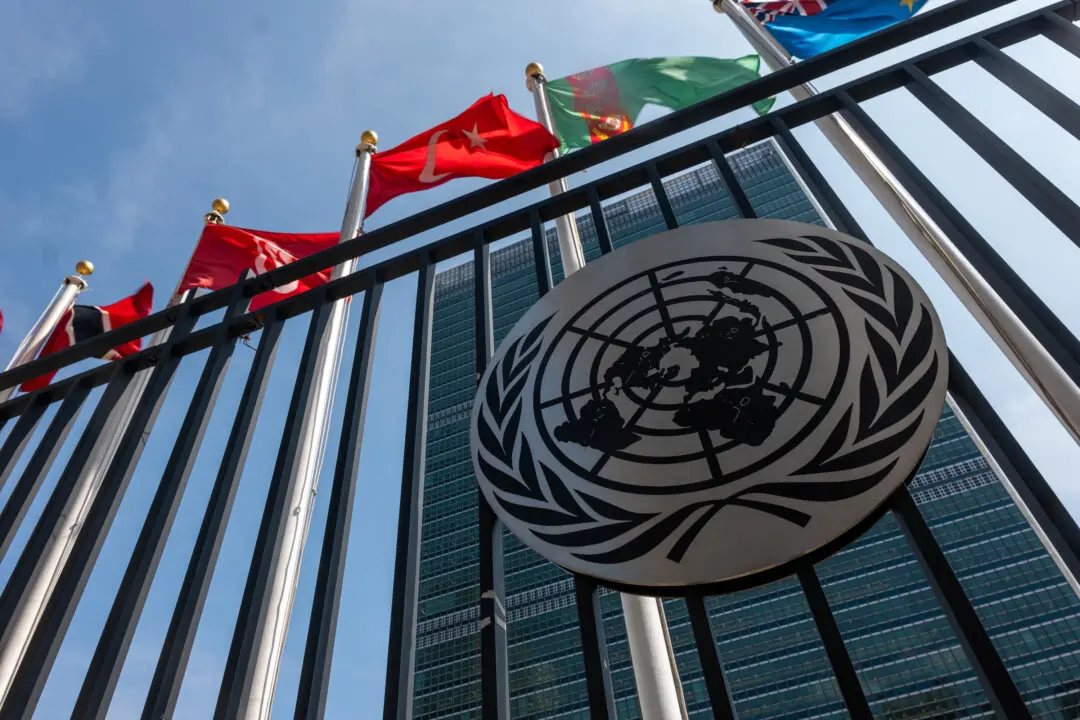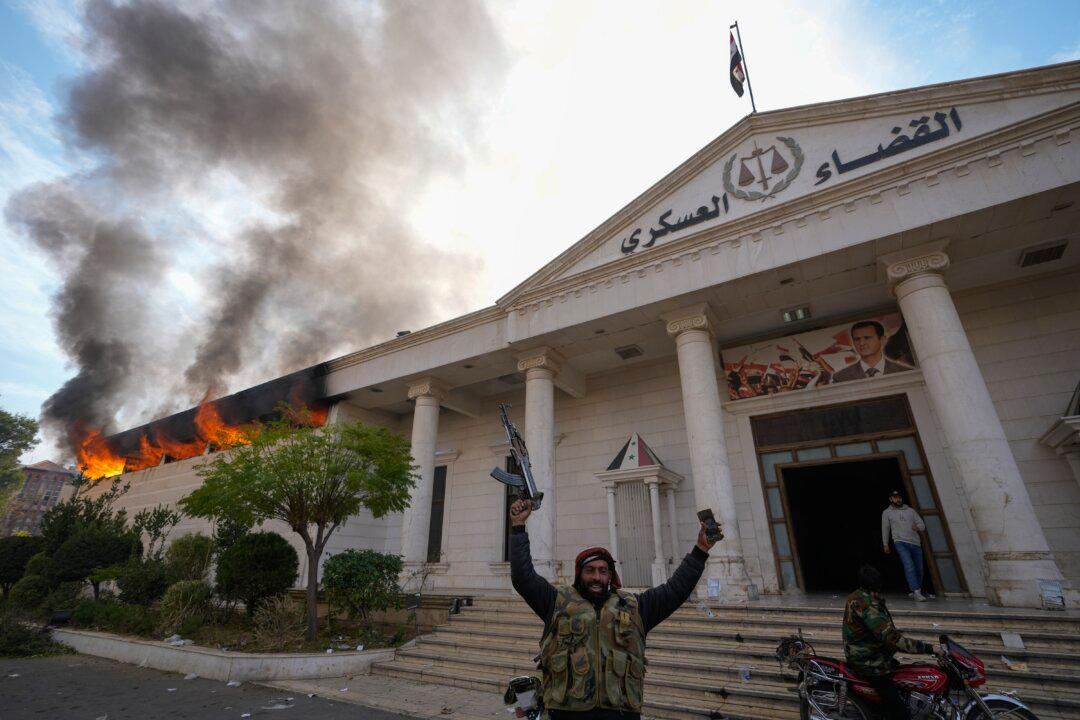Commentary
At the recent Shanghai Cooperation Organization (SCO) summit in Tianjin, China, Turkish President Recep Tayyip Erdogan and Iranian President Masoud Pezeshkian shook hands, announcing a strategic drift with operational consequences that Washington and NATO can no longer ignore.
The SCO is a bloc built by Beijing and Moscow to counter Western power. Iran has been a full member since 2023. Turkey, a NATO ally, attended as a dialogue partner and lent the alliance’s credibility to a forum designed to oppose the United States.
The implications are concrete. Political theater at the SCO translates into permissive space for logistics, finance, and technology flows that erode sanctions and complicate allied coordination. Ankara’s engagement offers Tehran diplomatic oxygen, potential economic channels, and a path to normalize cooperation.
The operational question is not Ankara’s rhetoric but what capabilities and relationships this forum enables. If Turkish ministries, state‑owned enterprises, or defense companies use SCO mechanisms to expand contact with Russian and Iranian counterparts, the result will be stress on export controls, financial compliance, and intelligence deconfliction.
Defenders will call the maneuver pragmatic nonalignment. They will argue that Turkey balances among centers of power to maximize leverage. That case ignores scale and direction. When a NATO ally lends political cover to a bloc positioned against the United States, and does so alongside a U.S.-designated state sponsor of terrorism, the cost is not theoretical. It appears in blurred compliance lines, contested technology transfer, and allied planning that must discount Turkish reliability at the margin. The problem is not Turkey’s desire for autonomy; it is the friction imposed on collective defense when autonomy is performed on stages designed by Beijing and Moscow.
Washington should move from unease to policy. The U.S. State Department should formally request that Ankara explain the commitments it has made or intends to make under SCO auspices, including any participation in security or law enforcement coordination with Moscow or Tehran. That record matters because allied planners need to know whether Turkey is volunteering to sit in rooms where Western adversaries shape counter‑U.S. strategy. The U.S. Congress should open a review of security and financial assistance to Turkey and condition future support on verifiable alignment with NATO’s posture, including tighter oversight of export‑controlled technology, defense industrial cooperation, and access to U.S. financing.
NATO must also conduct an urgent compartmentalization assessment. The SCO signal requires a tighter calibration of who accesses what and when. Planning for air and missile defense, maritime posture in the Eastern Mediterranean and Black Sea, and joint intelligence, surveillance, and reconnaissance should be stress‑tested against scenarios in which Turkish equities diverge from allied priorities. That is prudence, not provocation. If not, the alliance will have built guardrails to protect sources, methods, and warfighting coherence.
This is a moment to speak to Turkish interests. The United States should make clear that the benefits Ankara seeks—modernization of its air fleet, deeper industrial collaboration, privileged intelligence and training pipelines—depend on choices that reinforce, not erode, the coalition deterring Russia and constraining Iran. Strategic ambiguity may serve domestic politics in Ankara, but it is incompatible with alliance systems that depend on trust. The price of trying to arbitrate between blocs is that both will question reliability; the side that runs the institutions you need will act on that doubt.
None of this requires hostility toward Turkey or indifference to its legitimate security concerns. It requires clarity about the consequences of choices. Ankara sits at the hinge of Europe, the Middle East, and the Caucasus, and wants room to maneuver. But depth is not neutrality. When that maneuver space is used to legitimize forums that consolidate the power of Russia, China, and Iran, the maneuver becomes a vector for adversaries. The result is not leverage for Turkey; it is leverage for those who prefer a divided alliance.
The handshake in Tianjin is therefore a decision trigger. Washington and NATO do not need to overreact, but they do need to decide whether to treat this as business as usual or as a signal that Turkey’s calculus is shifting in ways that require a reassessment of the security relationship. Contingency planning should begin: alternative basing and logistics routes for critical missions, tighter technology sharing, and a framework for reconstituting cooperation if Ankara chooses to reaffirm its commitments. If, instead, Ankara deepens its ties to the SCO’s orbit, the alliance should be ready to operate with a Turkey that is formally in NATO but functionally semi-aligned with a rival bloc. Designing for that possibility today will protect allied deterrence tomorrow.




